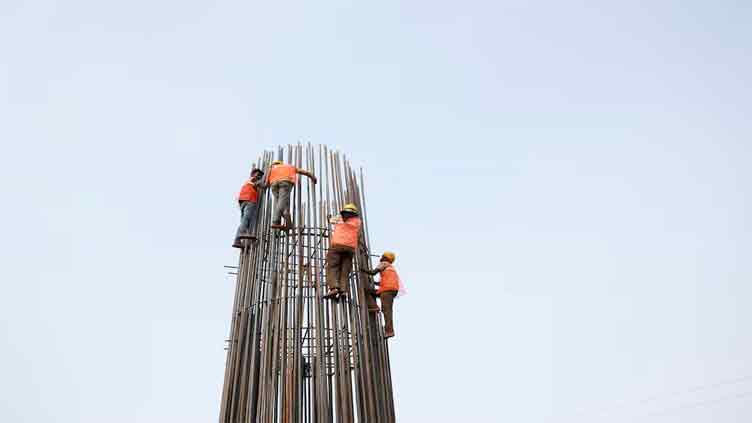In India heatwave, Delhi labourers toil in 'red hot' conditions

Business
A worker says it is among the hottest it has been in this area
- Northwestern India is experiencing an unusually hot summer
- National weather office has forecast three times the usual number of heatwave days this May
- Experts say climate change adds fuel to the heat
NEW DELHI (Reuters) - Working on a highway project in one of India's hottest areas this summer, Banwari Singh handles iron bars that he says often turn "red hot".
Temperatures hit 47.8 degrees Celsius (118 degrees Fahrenheit) last Sunday, among the highest recorded in India this year, in Najafgarh, an area on the outskirts of New Delhi where Singh works.

"This is among the hottest it has been in this area," Singh, in checked trousers, a half-sleeved shirt, a bright orange safety vest and a hard-top hat, said.
"But we have no option. If we want to eat, we have to work whatever the conditions are," said the 40-year-old, resting near a pillar he is helping to build.
The northwest of India is experiencing an unusually hot summer and the national weather office has forecast three times the usual number of heatwave days this May. Experts say climate change adds fuel to the heat.
Read more: Climate change is slowing heatwaves, a phenomenon visible in Pakistan too
Delhi shut schools earlier this week as temperatures rose. Voters in India's national election face the prospect of queuing this weekend in the sweltering weather.

Singh and other labourers, who earn around 500 rupees to 700 rupees ($6-$8.4) a day, say they dread the heat and some fall sick as a result of the hot conditions.
Water is available for workers to douse themselves regularly to beat the heat and some buy cool drinks from a makeshift shop nearby.
The deputy project manager, Vinay Sahani, said the company provides water for workers, and sometimes lemonade, and asks workers to rest after noon when temperatures peak. Work can resume after sundown, he said.

Sumit Goswami, 21, who had to take time off this week after a heat-related illness, said he has worked in hot conditions before.
"But this year it has become extreme," he said. "Still, we have to continue because we have to support the family."


